~ 20 ~
THE GREATEST GIFT OF ALL ~
“This is my body which is given for you.”
I prepare my heart for prayer
As I begin, I take a moment to become aware of the Lord present to me,
looking upon me with love, desiring to speak to my heart.
Prayerfully, I read Luke 22:7-30
After prayerfully reading, I ask for a grace I desire in this time of prayer.
Using my reasoning:
• Think about what is happening in the scene; what are the action words?
• Who are the people in the scene? What is the place? What things are described?
• What words catch my attention? What does this mean to me?
Using my imagination:
• Imagining myself in the scene – am I an observer or participant? To whom am I drawn?
• Using all of my senses – what do I see? What do I hear? What do I feel, smell or taste?
Reflect on what God is saying to my heart:
• As I reflect, I use my spiritual senses to acknowledge what is transpiring in my heart – my thoughts, feelings and desires. (Acknowledge means to see, to notice, to become aware of, to name.) This is important to do, as my thoughts, feelings and desires shape my actions.
• I look for the truth the Lord is communicating to me. I ask Jesus to give me his mind and his thoughts to see with the eyes of his heart what he wants to reveal to me today. How is Jesus calling me to apply this truth to my life?
Guided Reflection
Quoted from “An Ignatian Introduction to Prayer,”
by Father Timothy M Gallagher, O.M.V1
Jesus says to Peter and John: “Go and prepare the Passover for us …” All is foreseen, all is carefully prepared for the Eucharist … Nothing happens by chance … I watch Peter and John as they go into the city, as they make the preparations for the meal … I prepare with them for what is about to happen.
Now it is the hour of Jesus … I am there as evening falls. I see the Upper Room, I see the table, the dishes, the wine, the lamb … I gather with the disciples. Our hearts sense that some great mystery is about to take place …
“I have earnestly desired to eat this Passover with you …” These words open for me the depths of Jesus’ heart. I linger here in my prayer, I sense the great desire in Jesus to give the gift of his Eucharistic Body and Blood to his disciples, to me … I speak to him of my desire …
I am there, I watch each detail, each gesture, with profound reverence. I see Jesus take the bread … break it … give it to his disciples, to me … I hear the words: “This is my body …” I realize what this gift has meant, does mean, in my life … I speak to the Lord …
He takes the cup: “This cup … is the new covenant in my blood …” I sense the magnitude of the gift that is given: the gift of his Body and Blood, his whole being, to the Church, to me … My heart speaks to him …
Humanity struggles to grasp and accept the gift … One will betray him. A dispute arises regarding who is the greatest among them … And Love is with them, as one who gives himself to them: “For which is the greater, one who sits at table, or one who serves? But I am among you as one who serves.”
I become quiet, my soul is stilled. My heart turns toward the Lord, aware of the gift of his Presence, his Body, his Blood, simply gazing, simply receiving, silently giving my own heart. Now, heart speaks to heart, wordlessly, deeply …
“O, you are my God, for you my soul is thirsting …”
I ask for this grace in this time of prayer:
Converse with God2
Acknowledge:
• What are the thoughts arising in my heart? I think …
• What are the feelings arising in my heart? I feel …
• What are the desires arising in my heart? I desire …
Relate:
I honestly relate these to God; I talk to him about them, trusting he is present and listening
to me, his beloved child.
Receive:
• I listen to what the Lord wants to say to my heart, knowing his love is gratuitous and unconditional. I receive his love and consolation. I trust he longs to console me, to encourage me, to strengthen me, to heal me, to forgive me …
• I allow him to lead me; perhaps returning to the scripture …
Respond:
• I conclude my prayer time speaking to Jesus, God the Father, and/or the Holy Spirit as I would speak to a friend. I may also invoke the intercession of Mary and the Saints.
(St. Ignatius calls this a colloquy.)
Praise him – give glory to God for who he is; for being all good and loving; for being my Lord and savior …
Thank him – for our time together; for his word to me; for the gifts he has given me today …
Ask him – for his help, grace, strength, wisdom, deeper faith …
• Based on what God is saying to my heart, I resolve to act in the following concrete way to love God and love neighbor (which could be something small). Today I will …
Rest in the Lord: Be still and know that I am God
Psalm 46:10
1 Gallagher, T., 2008. An Ignatian Introduction To Prayer: Scriptural Reflections According To The Spiritual Exercises. New York: The Crossroad Publishing Company.
2 This way to converse with God in prayer often called ARRR is taught by The Institute for Priestly Formation out of Omaha Nebraska. For more information see Father Traynor, Scott (2013) The Parish as a School of Prayer and Dwyer, Karen and Lawrence (2011) WRAP Yourself in Scripture (IPF Publications).










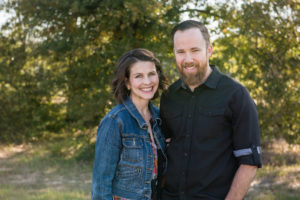


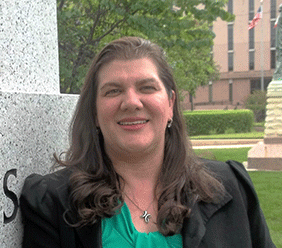
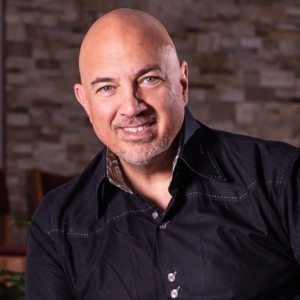
 Kimberly Kay Cox
Kimberly Kay Cox
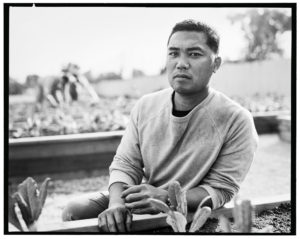






 Mark Mogilka
Mark Mogilka














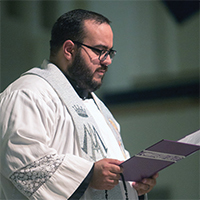



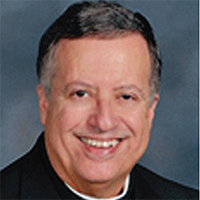

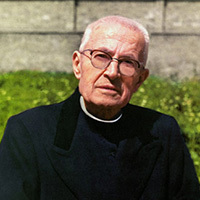







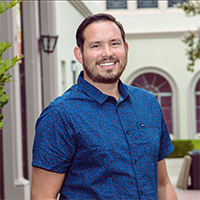
 Armando Cervantes
Armando Cervantes Anna Betancourt
Anna Betancourt
 Andrea Chavez-Kopp
Andrea Chavez-Kopp